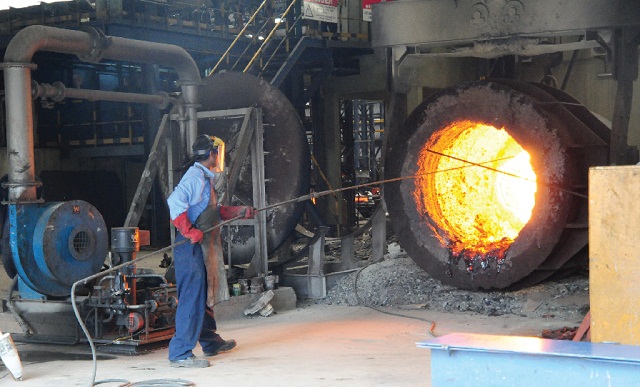j park bohol
Lucknow: Chief Minister Yogi Adityanath on Sunday announced that while 40 crore devotees are expected to attend the 45-day Maha Kumbh in Prayagraj , arrangements are being made to accommodate 100 crore people. "Maha Kumbh will feature extensive facilities, including 12 km of ghats and an expanded area spanning 10,000 acres. Devotees will have the opportunity to experience the darshan of Char Dham, Dwadash Jyotirlingas, and other significant Jyotirlingas. The event will integrate cutting-edge technology, such as an AI-based mobile app (Bhashini) that will guide users in 11 languages, allowing visitors to access information about the Kumbh and available services in their preferred languages," the CM said. "During Mauni Amavasya on Jan 29, an estimated six crore devotees will take a holy dip, but preparations will be made to host 10 crore people. The govt plans to implement a precise headcount of every attendee and ensure a sustainable eco-friendly event," he said. "The Maha Kumbh will be organised while ensuring zero waste water discharge into river streams. A total of 1.5 lakh toilets would be set up while single-use plastic would be banned. The event aims to set a benchmark and drive Uttar Pradesh's roadmap for economic prosperity," the CM said. Highlighting the key takeaways from 2019 Kumbh, Yogi said, "Anyone who witnessed the Kumbh in 2019 would have seen the out-of-the-box efforts that made it clean, safe and well-organized. What was once associated with dirt, chaos, stampedes and insecurity became a divine and grand event." Referring to the gesture of Prime Minister Narendra Modi of washing the feet of sanitation workers in 2019 Kumbh, he said that it was a step that was taken to appreciate the efforts of thousands of workers who had toiled through the mela period to maintain utmost standards of cleanliness and hygiene. "It is part of our heritage to express gratitude to those who contribute to the success of an event or an ocasion," he said. He added that Maha Kumbh would showcase a unique confluence of faith and modernity. The CM outlined UP govt's efforts to transform Prayagraj into a hub of spiritual and infrastructural excellence. "The Sangam will feature a permanent ghat for the first time while a modern riverfront is also being developed along the Ganga. The water at the holy Sangam will be kept clean and uninterrupted while devotees will have year-round access to the Akshayvat Corridor. The Saraswati Koop Corridor, Bade Hanuman Ji Mandir and Maharishi Bhardwaj Ashram Corridor are already complete to welcome devotees. In Shringverpur, Prime Minister Narendra Modi inaugurated a 56-foot-high statue of Lord Ram embracing Nishadraj. The airport and railway stations in Prayagraj are undergoing major renovations and over 216 roads are being upgraded," he said. "This development reflects our commitment to blending spirituality with progress, creating a Prayagraj that is both modern and rooted in tradition," Yogi said. The CM also criticized the Congress and opposition parties for staking exclusive rights over the country's legacy. "Some people wander around with a self-proclaimed contract of representing India. They feel Discovery of India was the oldest book of this country," he remarked. Referring to the Supreme Court verdict on Ayodhya issue, Yogi said that some people continue to threaten the judges who delivered the decision. "The Chairman of Rajya Sabha was discharging his duty to ensure the House functions smoothly and public issues get discussed. Yet, some people accuse the Vice-President of the country of bias and brought a no-confidence motion to silence him," he said. He criticized attempts to question institutions such as the Election Commission and the Allahabad High Court. "These individuals even bring impeachment motions in the Upper House, showing their intention to intimidate anyone who speaks the truth or stands for country's heritage," he said. Yogi emphasized that the construction of the Ram Temple in Ayodhya was pivotal in driving development in the region. "Without the Ram Temple, there would have been no airport in Ayodhya, no double-track connecting the railway station in Ayodhya to other cities while roads would have continued to be single-lane. Though common man and devotees are expressing their gratitude, those who secretly inserted the word ‘secular' into the Constitution are at a loss," he said. "They have a problem with spirituality and development of Kashi and Ayodhya. We must understand their mentality," he added.For one to have a house standing strong, one needs to have laid a solid foundation for it. The same is true with identity, and digital public infrastructure more generally. Foundational identity is the bedrock of any legal or digital ID system, as it serves as the basis on which such systems are built to enable the provision of public services. The World Bank’s Identification for Development (ID4D) initiative foundational identity as a system established principally “to manage identity information for the general population and provide credentials that serve as proof of identity for a wide variety of public and private sector transactions and services.” ID4D goes further to mention that common examples of foundational IDs include civil registries, universal resident or national ID systems, and population registers, depending on the context. In other words, foundational identity has been described by many as a major enabler of “platformification” – a new coinage in the digital transformation lexicon which denotes using digital technology to transform traditional business models into platform-based ecosystems through interconnected services for operational efficiency. In many African countries, foundational ID systems such as civil registries are the basis for legal and digital identification systems which are built as “general purpose” systems, to support the establishment of different components of DPI to facilitate access to a litany of services from government and the private sector. To obtain a national ID card in countries like Cameroon, Burkina Faso, South Africa or Tanzania, one needs to provide a birth certificate as a foundational ID document, which is what attests to the legal recognition and existence of that individual from the time of their birth. Sébastien Gueremy, VP Identification & Verification Solutions at discusses this in detail in an published by in September of 2023. In his write-up, Gueremy makes the case for having solid foundational identity systems, highlighting that they are crucial in establishing legal and digital identity which is critical in enabling citizens enjoy their fundamental rights such as having easy access to healthcare, education, enjoying the right to vote in elections or participation in other democratic processes, as well as the right to legal protection. While it is true that foundational identity systems are crucial in digital transformation efforts of countries, establishing them and ensuring their optimum performance still poses a significant challenge. This is reflected in a World Bank survey in 2021 and 2022 which examined the ownership of government-issued identity documents in 36 African countries. It noted that in many of the countries, over 70 percent of the population did not have access to a government-issued identity document and one of the reasons, as seen , was the lack of foundational identity documents like birth certificates. The United Nations estimates that about 850 million people around the world still do not have a legal identity, and therefore are cut out from enjoying some of the fundamental rights they normally should enjoy. That is why it is recommended that for countries to effectively handle situations like this and make legal ID more accessible for their citizens, major efforts must be deployed to put in place the right conditions for building foundational identity systems which can go a long way in closing the yawning digital identity gap in the world. So, in order to build robust, inclusive and effective foundational identity systems which can be used for general purpose service delivery, there are a number of things countries can do. These include putting in place workable policies and legal frameworks, setting up national population registers if need be and digitizing civil registration systems, making such systems interoperable and integrable with other existing systems, harmonizing siloed identity databases, deploying the right technology such as biometric or other AI-powered solutions, laying emphasis on data privacy and security and having guardrails in place, and if possible preparing the groundwork for integration with international identity systems. From the forgoing, it goes without saying that the impact of foundational identity on the advancement of the legal identity agenda cannot be undermined. It is a major step toward enabling countries attain their Sustainable Development Goals. | | | | | | |
If AI can provide a better diagnosis than a doctor, what’s the prognosis for medics? | John Naughton
What to know about Scott Turner, Trump's pick for housing secretary
Nationwide voter education roadshow starting Dec 2
Online Therapy Services Market , 42% of Growth to Originate from North America, TechnavioRutgers 77, Georgia Southern 60
6 of the Best Cryptocurrencies You Can Buy This December for the Biggest Profits in 2025
Norfolk DA Michael Morrissey remains on hot seat in Karen Read murder case
- Previous:
- Next: jilipark com login




